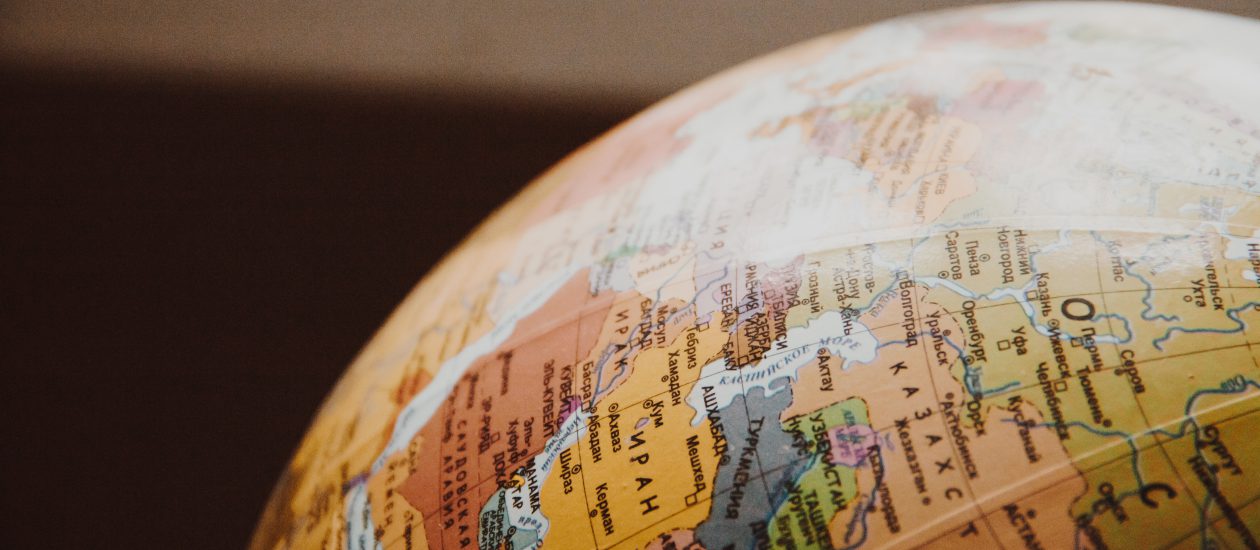Data Science is a geographically and culturally open industry. We believe that openness and fluidity of international talent across borders allows the industry to evolve. Data is global, and so are data scientists. With that in mind, here’s a round-up of Data Science news from around the world:
India & US: Data Science & Healthtech
Data tech firm Descartes Labs, have developed a computer platform that gathers satellite images in high-resolution; cleans, aggregates and stores them in a database for researchers to use when determining which environments may be disease-harbouring. By collecting and processing this data, researchers are able to consider a host of factors that might contribute to, for example, the spread of potentially catastrophic mosquito-borne diseases and minimise, if not eliminate, the impact of an epidemic.
What’s more, they report that; “in what’s known as retrospective analysis, the team has looked at past data to see if their models can predict what they know already happened. If the models square up with history, the team will then try to predict the future”.
A similar approach is being applied in India where data scientists are using predictive analytics to identify those patients who are at the highest risk of contracting life-threatening infections.
Using data science, they are able to profile and identify patients most at risk of bacterial infections contracted in hospitals, such as Clostridium Difficile 101 (or CDIFF). In the US 500,000 people are infected every year and, of those, 29,000 people die from it.
The Data and Decision Sciences team at Microsoft, have used data to create customer profiles and risk models. It scores them for age, medical history, antibiotics usage, and other factors to determine the likelihood of a patient contacting CDIFF, and how likely it is to be fatal. The results? So far using old data, and just one hospital, they’ve reached 85% accuracy in diagnosis, and as they pull in more data they’re hoping to get to 95% accuracy before making the technology more widely available.
Africa: Big Investment In Data Science Projects
It’s not just the medical sector that benefits from progression of data science. All major industries are recognising the competitive advantage that data science can bring to their business. The machine learning market, for example, is fueled by data science and is estimated to reach $70 billion by 2020. In Africa, the desire to tap into this has meant overhauling the recruitment sector, and turning to data scientists for assistance.
Nigeria is one African country taking this need to reform education seriously by hosting annual learning boot camps for young data scientists. Data Science Nigeria was set up to develop a new generation of world-class data scientists, with the aim of securing a minimum 2% share of the $125 billion big data analytics market.
China: Looking For Talent From US and Europe
Securing data science talent is also a priority for China. A report released by Hays showed that Chinese mainland enterprises have stepped up plans to hire staff involved in the artificial intelligence industry from the United States and Europe.
“IT business commentators claim investment levels in areas such as artificial intelligence in mainland China are now eclipsing other parts of the world…We are seeing significant government and private investment in AI across natural language processing, computer vision, speech recognition and data science” – Simon Lance, Managing Director for Hays Greater China
The aim is to turn the country’s AI sector into an industry worth more than $22.15 billion by 2020, $60 billion by 2025, and $148 billion by 2030. The biggest challenge here is that China’s Data Science talent pool is only half that of the United States, according to Tencent’s Research Institute. “Up until now, China has not established a system to cultivate talent in AI,” said Yu Youcheng, deputy secretary-general of Chinese Association for Artificial Intelligence. Expect to see China making some serious investment in data science talent in the very near future.
Russia: AI Is The New Space Race
Analysts in Russia are talking about the development of AI as ‘the new space race’. It comes after Russia’s President, Vladimir Putin, expressed the view that any country taking charge of AI research will hold a considerable advantage in global affairs.
“[AI] comes with colossal opportunities, but also threats that are difficult to predict. Whoever becomes the leader in this sphere will become the ruler of the world.” – Vladimir Putin
Perhaps inevitably, any discussion at these levels leads to the military applications of AI and national security concerns. It’s actually China and the US (and not Russia) who are seen as the two frontrunners, with China recently announcing its ambition to become the global leader in AI research by 2030. This could be why Russia is putting renewed emphasis on sharing knowledge across countries: “If we become leaders in this area, we will share this know-how with the entire world, the same way we share our nuclear technologies today.”, a sentiment that was received with some skepticism by Elon Musk.

If our global data science round up showed anything, it’s that skills shortage and access to talent continues to be an issue that nations need to address. We’ve discussed this in older blog posts (in relation to the UK restricting access to global talent, for example). We believe that diverse, global workforce is beneficial to business – in fact we’ve got the data to prove it.
It is encouraging to see investment and commitment at the highest levels from Russia, China and African nations, and look forward to seeing the fruits of this in years to come. We believe in connecting data scientists and businesses together across the world to unlock the value and opportunities in data to revolutionise the way we work.
